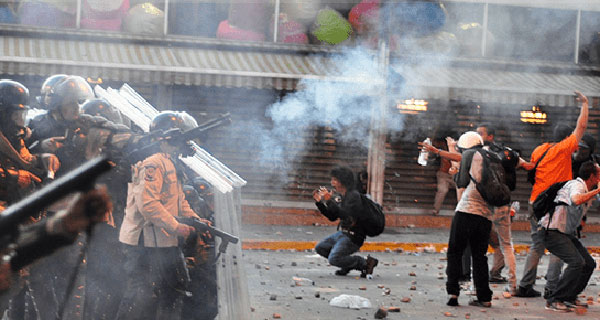 Nicolas Maduro was recently sworn in as president of Venezuela for a second six-year term. There are no signs things will improve in the strife-torn nation during this term.
Nicolas Maduro was recently sworn in as president of Venezuela for a second six-year term. There are no signs things will improve in the strife-torn nation during this term.
His first term was marked by hyperinflation, violent repression, flight of foreign investors, shutdown of businesses, bankruptcies, riots, food shortages, mass unemployment, widespread hunger, emigration of over three million citizens to neighbouring countries, escalating violent crime, and a general breakdown in rule of law and democratic institutions.
Only fellow socialist nations Cuba, Bolivia and Nicaragua sent representatives to ‘celebrate’ the inauguration.
Venezuela’s descent into misery began with Maduro’s predecessor and mentor, the charismatic, bombastic former military officer Hugo Chavez. Chavez began massive government spending, financed by extracting cash from the state-owned oil monopoly PDVSA (Petroleos de Venezuela, S.A.).
The rising demands from ‘Chavistas’ meant that PDVSA didn’t have adequate funds to maintain facilities, production, or its oil and gas reserves, once the second-largest in the world.
Had the government not already controlled PDVSA, its ability to suck the lifeblood out of the national oil industry might have been curtailed.
As it was, the volatile price of oil wrought havoc with government finances, and it felt compelled to try to raise revenue elsewhere: with confiscatory taxes; through restrictive import and capital controls; and, ultimately, by printing money. Printing money led to hyperinflation and the impoverishment of nearly everyone except the well-connected and the ruling elite.
The worst of all this already was apparent before Chavez died of cancer in 2013, but accelerated as Maduro desperately played whack-a-mole to try to deal with shortages and other failings.
PDVSA’s production and exports plummeted, and loans from friendly autocratic kleptocracies Russia and China dried up.
The Venezuelan government seized foreign assets and nationalized industries, plundered them and left them dead.
In response, the unemployed hordes fled abroad, causing instability in neighbouring countries.
Government’s essential role is to maintain the rule of law and institutions that serve the people. A hard-won precept of western civilization is that government exists to serve the people, not the other way round.
Confidence in government and institutions is hard to keep and easy to lose, especially the trust that personal, economic and market freedoms and rights will be respected and protected, including property rights and currency stability.
These things are hard enough to preserve in developed democracies, let alone in fragile, developing economies with weak institutions and suspicious, skeptical populations, as in Latin America.
A few nations in Latin America have gradually gained the respect of local and foreign investors, and they have reaped the rewards. Chile is the most notable one – it’s now considered a developed nation with financial, economic, political and social stability, sound rule of law, and a rapidly-falling poverty rate.
Other major nations seeking a more centrally-planned, collectivist or government-centered and less market-friendly path to development, such as Brazil, Argentina and Mexico, have had lower economic growth, as well as far less success in reducing poverty and in attracting foreign investors.
Colombia and Peru offer encouraging counter examples.
Trust and confidence are hard to establish in personal relationships or reputations; even more so in nations, institutions, rule of law and economies.
There’s no easy way to success and prosperity. Taking from one group or groups and giving it to others doesn’t accomplish this. It just creates misery and strife.
Restoring trust and confidence, let alone prosperity, in Venezuela, will be a long and hard task. The same can be said of any place that tries to redistribute wealth as a route to nirvana, rather than creating conditions that generate wealth.
Ian Madsen is a senior policy analyst at the Frontier Centre for Public Policy.
The views, opinions and positions expressed by columnists and contributors are the author’s alone. They do not inherently or expressly reflect the views, opinions and/or positions of our publication.


